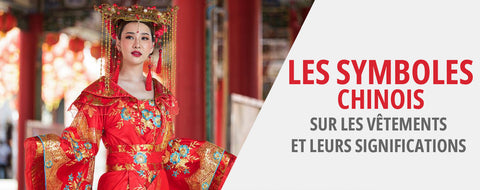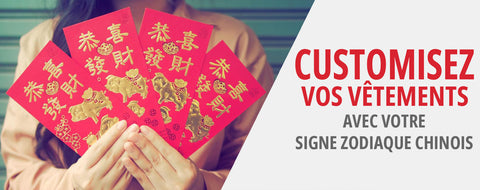
6 Famous Chinese Warriors
reading - words
For thousands of years, powerful dynasties ruled China. Each dynasty produced powerful emperors and rulers, each seeking to exert influence over the entire vast region. Throughout these dynasties, numerous armies were raised and thousands of battles were fought throughout East Asia. It was during these various conflicts that some of the greatest military commanders from ancient Chinese history have distinguished themselves.
Through this article we have traced the history of 6 famous Chinese warriors from the history of China: how they rose to the rank of the most powerful Chinese warlords for some, their breathtaking victories that changed the course of history and many other things that made them famous.
1) Sun Tzu

Sun Tzu is arguably the most famous Chinese warrior in history. Sun Tzu was a general under King He Lu of the Wu State. Leading the Wu army of 30,000 soldiers, Sun defeated the Chu State of 200,000 soldiers! But he is also best known for his book TheArt of War which is widely recognized as one of the most important books written on the subject of warfare. Although there are few precise details about Sun Tzu's early life, scholars have determined that he was born in the Chinese state of Qi and served King He Lu of Wu as a military specialist during the late Zhou Dynasty (1046 BC to 256 BC). Through his knowledge and experience, Sun Tzu developed military theories unique strategies focused on psychological warfare, an innovative concept at a time when most militaries generally focused on suppressing their enemies through overwhelming physical force. And it was by using these innovative strategies that he was able to defeat armies much larger than his own!
The lessons contained in The Art of War focus on one main theme: the use of unconventional means and deception to exert a psychological domination, providing invaluable leverage over enemies in military situations. In his teachings, Sun Tzu encourages tactics such as dissolving enemy alliances, and even how to use withdrawal or retreat as a tactical advantage. By studying Sun Tzu's philosophy of mental warfare and strategy versus total reliance on physical force, military historians can better understand how the Art of War has influenced military tactics employed by countries around the world to the present day.
2) Yue Fei

Yue Fei is one of the most famous generals in China. Born in the late Northern Song Dynasty, Yue Fei (1103-1142) is known not only for his military successes, but also for his high sense of ethics. With ancient biographies telling his story and a temple dedicated to his memory, Yue Fei is, in Chinese tradition, an enduring symbol of loyalty.
As Yue Fei came of age, China was being invaded by the Jürchens from the north and the emperor was in desperate need of warriors competent. Yue Fei was faced with a dilemma: on the one hand, he wanted to fight the Jürchens and defend his homeland; but on the other hand, he also wanted to stay behind and care for his elderly mother. Torn between his values of loyalty and his respect for his elders, he did not know what to do. To encourage him, his mother asked him to go shirtless. She then tattooed four Chinese characters on his back: jing zhong bao guo which meant "to serve the country loyally". Now able to fulfill both his mother's wish and his duty to the country, Yue Fei quickly went into battle.
Yue Fei organized and trained a powerful army, comprehensively defeated his enemy, and brought triumph and hope to countless people. Indeed, Yue Fei created his army, theYue Fei's Army. It originally consisted of a few refugees in the north who wanted to return to their lost home, and then developed into a large force with glorious military exploits. Once, with only 500 men, he defeated a Jurchen army of 100,000 soldiers, forcing them to flee! The army he led was called the "Yue Army" and there was a popular saying among the people: "It is easy to shake a mountain, but it is not easy to shake the Yue Army."More than 100,000 warriors in his troop were extremely loyal, strong, and disciplined. Yue Fei was famous for protecting civilians and taking care of his soldiers outside the battlefield. He was strict with his soldiers and forbade them from mistreating civilians in the cities they passed through. Therefore, General Yue Fei and his army were highly respected and loved by the civilians.
But Yue Fei's exploits aroused the jealousy of several officials close to the emperor. Therefore, on January 27, 1142, Yue was poisoned to death at the age of 39, in prison, in Hangzhou by Chancellor Qin Hui after being falsely accused. However, 21 years later, Emperor Xiaozong ascended the throne and ordered the rehabilitation of General Yue's reputation. The emperor decreed that Yue's tomb be built near Hangzhou's West Lake.
3) Han Xin

Han Xin (c. 231–196 BC) was one of the strategists most outstanding military figures in Chinese history. He is best known for helping Liu Bang seize power and usher in the 400-year reign of one of China's most glorious dynasties.
At the end of the Qin Dynasty, China had fallen into chaos and several states were vying for control. Han Xin served in the Chinese army, rising through the ranks as a low-level guard before being promoted to the rank of senior general in just a few years. Lord Liu Bang recognized Han Xin's military prowess and predicted that the man had the potential to become a asset vital. This ultimately proved true, as Han Xin's determination and strategic thinking allowed Liu Bang to establish himself as one of the three rebel leaders who fought for military superiority. Under Liu Bang's leadership, Han Xin played a pivotal role in forcing an end to a five-year war against the Chu army.
During this conflict, Han Xin fought battles with Chu armies much larger than his own, using tactics which involved psychological warfare, as well as surprise attacks and strategic positioning to gain the upper hand in conflicts. The Battle of Jingxing, in which Han Xin positioned approximately 30,000 of his men with their backs against a river (thus blocking any possibility of a surprise attack), was the main demonstration of Han Xin's combat effectiveness, ensuring that they would fight to the fullest extent of their abilities when facing approximately 200,000 enemy troops. At the same time, he sent a small number of mounted soldiers to capture the enemy camp, so that by the time the opposing army was facing defeat on the battlefield, the shocking discovery that she had no base to fall back on caused her army to collapse.
With the help of Han Xin, Liu Bang's forces emerged victorious and he became the first emperor of a new dynasty. Han.
Han Xin showed a remarkable loyalty. When he conquered the Kingdom of Qi, some urged him to abandon Liu Bang and establish his own kingdom on the lands he had taken.My gratitude to King Han is extremely deep.", Han Xin is said to have replied. Han Xin's loyalty stemmed from his belief in following the will of heaven and the traditional Chinese belief that emperors were endowed with their power through divine blessing.
Despite Han Xin's promises that he had no intention of usurping the throne, over time Liu Bang and Queen Lu grew suspicious and jealous of the highly capable general. Eventually, Queen Lu accused him of "plotting rebellion." Han Xin was taken to a trap And killed at Changle Palace with his relatives. The rest of his clan was also later destroyed.
4) Cao Cao

Cao Cao went down in history as one of the greatest powerful Chinese generals of the Han Dynasty, which spanned from 206 BC to AD 220. Cao was promoted to the rank of general due to his significant contributions in the late Han Dynasty. Yellow Turban Rebellion, an uprising of peasants and commoners that began in 184 and ended in chaos. By the end of the rebellion in 205, China had been divided into three unstable kingdoms, each to be ruled by a number of great generals. Generals of high rank, like Cao, fought and maneuvered to unify the kingdoms under a single ruler. After claiming a strategic position near the Emperor's capital Xian to the north, Cao took the emperor his prisoner.
Cao then forced Emperor Xian to gather hundreds of thousands of troops under his command, becoming the most powerful warlord in northern China. His goal was to gain the allegiance of other great generals, and when they refused to honor his command, he would force them to submit by strength. Using his control over the Chinese political and military landscape, Cao Cao assumed the role of ruler, and through careful management of resources, he pushed for the reunification of all of China. Despite his efforts, Cao Cao was unable to fully unify China due to the number of generals who adamantly contested his rule, but he is still remembered as a brilliant and celebrated commander who fought tirelessly to claim power and change the ancient Chinese socio-political landscape. Cao is also a perfect example of a ruler who used a political strategy, in this case, turning the emperor into a puppet, instead of resorting to military tactics or brute force to win the battle.
5) Xiang Yu

Xiang Yu and his family were stripped of their privileges and forced into poverty once the Qin Dynasty officially took over. power. The Qin Dynasty, which abolished rival states including the Chu state of which Xiang Yu and his family were a part, was the target of widespread hatred by Chinese citizens due to their cruel methods of enforcing government. Seeking power, Xiang Yu, cajoled by his uncle, Xiang Liang, decided to take up arms against the empire. As the battle between the combined rebel forces and the Qin Empire progressed, Yu eventually succeeded his uncle as Supreme Commander Chu rebel forces, later succeeding in crushing the capital of the Qin Empire, and executing the Qin Emperor. Notably with the Battle of Julu, where Xiang Yu with 50,000 men defeated over 400,000 Qin men after days of fighting. Up to 200,000 Qin soldiers surrendered to him. He then massacred these soldiers. His victory sealed the fate of the Qin Dynasty.
With the emperor dead, the great generals all attempted to seize imperial supremacy. Yu made a treaty with General Liu Bang, stipulating that the two sides would divide the Chinese territory equally. Unfortunately, Xiang Yu's forces were defeated by Liu Bang's army when he surprisingly broke the truce in 202 BC. After his defeat, Yu committed suicide before the enemy could capture him. Today, historians remember him for his heroism in the heat of battle, as well as the pivotal role he played in the dissolution of the ill-fated Qin Empire. Yu's legacy is honored in countless stories, songs, and poems.
6) Qi Jiguang

Qi Jiguang was born in 1528, during the Ming Dynasty, which lasted from 1368 to 1644. When the Mongol army, which had been driven from power at the end of the previous dynasty, attempted to reconquer Chinese territory by crossing the Great Wall of China In 1549, Jiguang served as a general in the defense of Beijing and contributed significantly to repelling the Mongol invaders.
After defeating the Mongols, Jiguang was eventually appointed deputy commander in charge of defending the coastal area of Zhejiang against raids by pirates around 1556. Qi Jiguang repelled attacks from Japanese pirates by forming a group of volunteers to defeat the invaders with a tactical training innovative called training of mandarin duck. This new creative approach used advanced collective combat tactics to ensure that a group of 12 men would protect their leader at all costs during a conflict; if the leader were to die, Jiguang would order all survivors of that unit to be put to death, thus ensuring that the soldiers would make every effort to protect their leader since their own lives depended on it. This cold-blooded but effective strategy allowed Jiguang to definitively repel the Japanese invaders in 1567, earning him the respect necessary to attain the highest rank in the Chinese army, that of Chief Commissar, in 1574. The core concepts of Jiguang's time as Chief Commissar helped to improve theoverall efficiency of the Chinese army and to advance its defensive tactics
The wars of ancient China produced new political systems, new military strategies, and new philosophies, which form the foundation of what the People's Republic of China represents today. The lessons left by the generals and military strategists of that era have continued to impact world military events, as their strategies, theories, and tactics are often applied to modern military situations; many modern American generals admire Sun Tzu's psychological and defensive combat tactics in military campaigns.
Here we have profiled 6 Chinese warlords but there are many others, with incredible stories and exploits, which we will tell you about soon.






